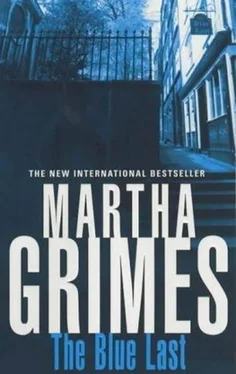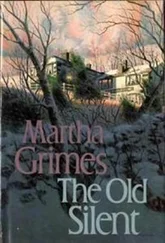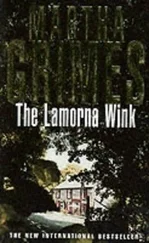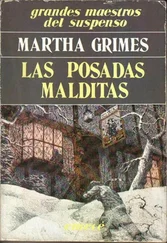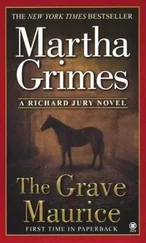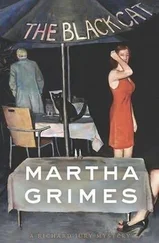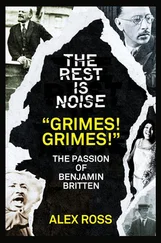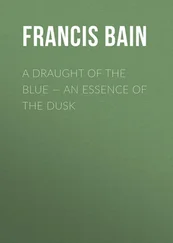Martha Grimes - The Blue Last
Здесь есть возможность читать онлайн «Martha Grimes - The Blue Last» весь текст электронной книги совершенно бесплатно (целиком полную версию без сокращений). В некоторых случаях можно слушать аудио, скачать через торрент в формате fb2 и присутствует краткое содержание. Жанр: Детектив, на английском языке. Описание произведения, (предисловие) а так же отзывы посетителей доступны на портале библиотеки ЛибКат.
- Название:The Blue Last
- Автор:
- Жанр:
- Год:неизвестен
- ISBN:нет данных
- Рейтинг книги:3 / 5. Голосов: 1
-
Избранное:Добавить в избранное
- Отзывы:
-
Ваша оценка:
- 60
- 1
- 2
- 3
- 4
- 5
The Blue Last: краткое содержание, описание и аннотация
Предлагаем к чтению аннотацию, описание, краткое содержание или предисловие (зависит от того, что написал сам автор книги «The Blue Last»). Если вы не нашли необходимую информацию о книге — напишите в комментариях, мы постараемся отыскать её.
The Blue Last — читать онлайн бесплатно полную книгу (весь текст) целиком
Ниже представлен текст книги, разбитый по страницам. Система сохранения места последней прочитанной страницы, позволяет с удобством читать онлайн бесплатно книгу «The Blue Last», без необходимости каждый раз заново искать на чём Вы остановились. Поставьте закладку, и сможете в любой момент перейти на страницу, на которой закончили чтение.
Интервал:
Закладка:
“No maid? Cook?”
“No, none. It’s quite a small house and I prefer not to have to be bumping into other people.”
Jury pushed back his chair and Marie-France rose as he did. “Thanks very much, Mrs. Muir. And if you could just give me your sister’s address-?”
They were standing at the door and she nodded, sadly. Must have been a beauty back then, he thought. Another one I completely misjudged. So much for police intuition.
When Maisie Tynedale entered the room elegantly suited in black, and sat down, Jury felt a sense of disquietude and thought it had been very poor judgment on his part to talk to the others first, but, then, Mickey had already planted an idea in his mind which had neither been reinforced nor dispelled by the others.
His eye traveled to the portrait and back to her, trying to limn in the features of Alexandra Tynedale on Maisie. Maisie followed his line of vision. “Yes, I know,” she said. “Disappointingly unbeautiful.” She smiled.
So did Jury. “Not at all. I was merely wondering if you looked like your mother.”
Maisie looked again at the portrait. “Her coloring, her hair, possibly her mouth, but definitely not the eyes; the eyes are what count.”
In this case it was the coloring that did it. Black hair, falling straight just below the ears; ivory skin, a heightened color on the lips and cheekbones. A person who had no reason to suspect she wasn’t Alexandra Herrick’s daughter would think straightaway Maisie was her daughter.
The thing was, though, hair and coloring could always be altered, and hers had been. The black hair was not her natural color, and rouge had been artfully applied. But even so, she could still be Alexandra’s daughter, wanting to look more like her.
“What about your father? Is there a picture of him?”
“He’s around.” Her eyes turned to the serving table and the photographs there. “My grandfather might have him. He shifts photographs around-have you spoken to him?”
Jury shook his head. “No. He’s quite ill, I understand.”
“He’ll be crippled by Simon’s death. You know, we might as well all be brothers, sisters, sons, daughters. The two families are that close. Simon might as well have been Oliver’s son. I know Ian always thought of him as a brother.”
“I’ve got the impression all of you find the friendship of Francis Croft and Oliver Tynedale rather astonishing.”
“Unusual, at least. How it could go on like that, how it could go on since they were boys. Yes, perhaps ‘astonishing’ is the right word.”
“Your relationship with-” Jury consulted his notebook as if searching for the name which he perfectly well knew “-Katherine Riordin goes back a long way, too.”
“Kitty. Yes, I suppose you know about that night the Blue Last was bombed.”
Jury nodded.
“Well, Kitty just stayed on.”
And stayed. But, then, a lot of old nannies, family retainers, stayed on with their employers for a long time. And never having met the woman, Jury decided to drop that particular line of inquiry.
But Maisie continued. “Granddad gave her the cottage so she would feel more independent-”
“Which she isn’t; she’s completely dependent upon your family.”
Maisie grew somewhat defensive. “That sounds a little hostile.”
Jury raised his eyebrows. “I don’t mean it to. I’m stating facts, at least, as I know them. The source of Mrs. Riordin’s income could be important.”
“What are you hinting-?”
“Noth-”
“-that she murdered Simon for an inheritance?”
“That hadn’t crossed my mind. Why would Simon Croft leave money to your old nursemaid?”
Angry, she started to rise.
“No-” Jury put out his hand. “Please stay seated. I have more questions.”
Reluctantly and with mouth compressed, she sat back, arms folded in a somewhat combative stance. He noticed the deformity of the hand, then, a skewing of the index and middle fingers, a dislocation of the thumb. He recalled the snapshot of the baby Maisie, her tiny hand on her mother’s neck.
“You appear to be protective of Katherine Riordin.”
“She saved my life; yes, I suppose I am.”
Jury doodled on a fresh page of his small notebook. Doodles were the only thing in the notebook aside from a few telephone numbers and addresses. Wiggins saw to notes; he was the most thorough note taker around. Jury himself was afraid of impeding, muffling, the flow of speech. He didn’t like tapes either.
“Why is it,” he asked, eyes on his notebook, “everyone I’ve talked to makes it sound as if Mrs. Riordin rushed into that bombed building and pulled you out? Coincidence saved your life, not Katherine Riordin. She happened to have taken you out in a pram. That hardly makes her a heroine. It was also coincidence-of the worst kind, I imagine, to her-that she had taken you and not her own child.”
Maisie sat back, looking stunned, almost despairing that someone would not see Kitty Riordin as a heroine. Why, he wondered, was this so important to her? He could understand it if Maisie was really Erin Riordin and Kitty was indeed Erin’s real mother. Or could it be that the story of that night of the Blue Last’s destruction had taken on mythic proportions of salvation, self-sacrifice and heroism? Maisie caught up in that period of her life, the baby who had lost mother and father and could have lost her own life without Kitty Riordin’s intervention. Jury wondered if Oliver Tynedale was caught up in the same myth.
“Where were you between midnight and eight A.M.?”
“Across the river shooting Simon, perhaps?”
He smiled. “We have to ask everyone that question.”
“We’re all suspects? I’m a suspect? What on earth would be my reason? I don’t stand to gain by his death. I’ve got enough right now for a dozen people.”
Jury closed up his notebook and pocketed it. “I doubt the motive had to do with money. I expect everyone here has enough for a dozen people.”
“Then why? Why did someone shoot Simon?”
Jury just looked at her and repeated it: “Where were you early this morning?”
Twelve
He wanted, after all of this sitting-still talk, to move about and told the butler, Barkins, that he was going to have a walk in the garden and that that was where he was to be found in case Detective Chief Inspector Haggerty called.
It was early afternoon. He left the dining room through a set of French doors to a terrace and a walk that stretched along the side of the house, the house being much deeper than it looked from the front. The walk was flanked on its outer side by a series of columns. It was, actually, a covered colonnade, along the length of which these white pillars caught the mellow light of the sun. Jury had never been of the peripatetic school; he was very poor at thinking while he walked; what he was good at was smoking and he was dying for a cigarette. A year and nine months and two weeks-Good lord, and you’re still dying for a smoke.
Across the grass at a distance of some twenty feet stood a line of cypresses along a garden path inside the high stone wall. This tree-lined path ran parallel to the white columns, and between them was the statue of a child reaching her hand down to a duck. He heard voices and saw, between the pillars and the trees, somebody walking there, as he was doing. No, just the one voice was what he heard. He could not make out the words. The cypress trees, themselves like gray columns, were set in counterpoint to these white pillars, so that they appeared, as he walked, in the space between the pillars. Thus between cypresses and pillars, he caught the barest glimpse of the person he had determined was a little girl.
Читать дальшеИнтервал:
Закладка:
Похожие книги на «The Blue Last»
Представляем Вашему вниманию похожие книги на «The Blue Last» списком для выбора. Мы отобрали схожую по названию и смыслу литературу в надежде предоставить читателям больше вариантов отыскать новые, интересные, ещё непрочитанные произведения.
Обсуждение, отзывы о книге «The Blue Last» и просто собственные мнения читателей. Оставьте ваши комментарии, напишите, что Вы думаете о произведении, его смысле или главных героях. Укажите что конкретно понравилось, а что нет, и почему Вы так считаете.
